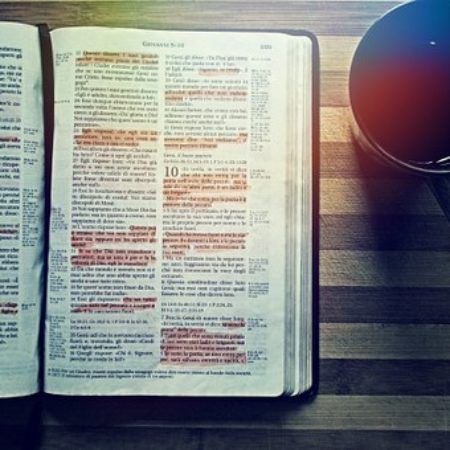We are about to enter a less-than-thrilling portion of Joshua: the description of the tribal land allotments. I suppose if you are a land surveyor, chapters 15-19 will keep you on the edge of your seat. However, for most of us, we have to plow through these chapters much like we do the genealogies of 1 Chronicles. Still, all Scripture is God-breathed as is profitable, and the two chapters we’re looking at this morning really set the stage for what follows in the rest of the book of Joshua.
Notice God’s promise to Joshua in 13:6 – I myself will drive them out from before the people of Israel. Only allot the land to Israel for an inheritance, as I have commanded you. This would be an act of faith, distributing the land to the various tribes even before the remainder of the occupants were defeated and displaced. As we noted in the previous post, God’s sovereignty and promises do not preclude, but actually motivate action on the part of his people. While God promised victory, Israel would have to fight. We begin to get a preview of an ongoing problem that would be disastrous for the nation in 13:13 – Yet the people of Israel did not drive out the Geshurites or the Maacathites but Geshur and Maacath dwell in the midst of Israel to this day. When we get to the book of Judges, we will see first hand how problematic Israel’s failure to cleanse the land would be for them. Why didn’t they drive out these people? The text doesn’t say but I believe that the account of Caleb in chapter 14 gives us a hint.
You probably know about Caleb and the fact that he stood with Joshua in recommending the nation to move into the promised land after spying it out with 10 others. But the other 10 spies were fearful and Israel did not trust God, and the result was 40 years of wilderness wandering until everyone over 20 years old at the start of the journey died. Now, 45 years later, Caleb asks Joshua for his personal land allotment as previously promised to him. Caleb proves to be an example to the Israelites of how the conquest of the promised land should be completed and the pagan residents displaced. Israel’s lack of faith in initially failing to enter the promised land is now being repeated in their failure to drive out the pagan nations. Caleb’s faith is a stark contrast to Israel’s faithlessness. Let’s see what we can learn about faith from Caleb.
- Faith is wholehearted devotion: While there are many ways to describe and define faith, one essential element is an undivided heart, refusing to allow anything to compete with following the Lord in obedience and trust (14:8).
- Faith is grounded in God’s character: Faith is not something that we can generate by the human will. It is a gift of God but it is always based on trusting God and his promises. Caleb repeatedly mentions what the Lord had said (14:6, 10, 12).
- Faith remembers: You may recall a few posts ago my mentioning that forgetfulness may be the greatest enemy of faith. Caleb remains strong in faith as he looks back on his life and recalls what God has done (14:10-11).
- Faith acts: Caleb doesn’t just claim to believe God. He is prepared to act in accordance with his faith. He will proceed to take the land and drive out the Anakim, should God support him in that quest.
Folks, real saving faith is so much more than believing certain truths about God and what he has done. At the end, faith is acting upon what God has said. It is trusting in God’s Word. It is living as if God really exists and he is who he says he is. Faith is not magical. We don’t have faith in faith. God’s power is not dependent upon the strength of our faith. The power of faith is found in the object of our faith – the Lord God Almighty!


